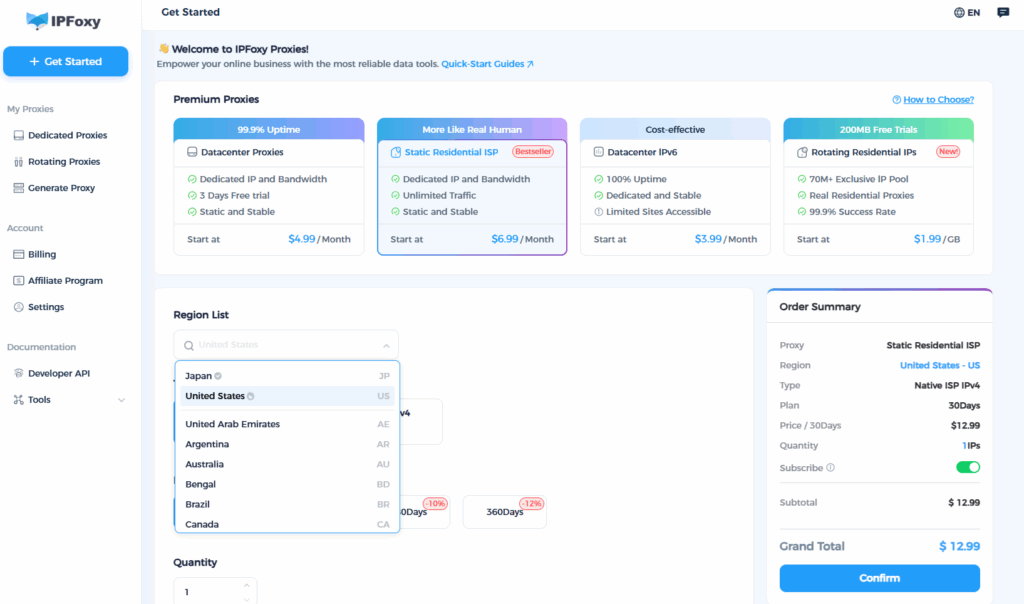Many sellers choose to open stores on AliExpress. To boost store ratings and quickly build “trust,” many attempt the so-called “self-cultivated account reviews”—raising their own accounts, self-registering accounts, and self-posting reviews. While it seems low-cost and highly controllable, in reality, issues like “unstable reviews,” “account bans,” and “association penalties” frequently occur.
This article explains the reasons for unstable AliExpress self-cultivated account reviews and the full process of environment setup. After reading, you should be able to avoid detours and reduce the risk of account bans.
I. Reasons for Unstable AliExpress Self-Cultivated Account Reviews
1、Low matching degree between account environment and platform risk control
Platforms judge whether an account is a “real user” or an “associated account” based on login IP, device fingerprint, browsing history, registration information, and association relationships.
Frequent IP changes during account login or operation can easily trigger the platform’s “association” or “abnormality” detection.
2、Poor IP quality
Many sellers use cheap shared proxies, which are likely to be blacklisted or marked as “high-risk” IPs by the platform.
Using low-quality IPs can lead to frequent changes in the account’s login geographic location, or mismatches between the IP, shipping address, and registration information—directly affecting the account’s evaluation weight.
3、Abnormal account registration and operation processes
If registration information is inconsistent with subsequent operations (e.g., an account registered in the US but operated long-term in China, or frequent changes to the shipping address), the AliExpress algorithm may identify it as a “review account/fake account.”
Intensive review behaviors or identical patterns (e.g., bulk reviews from the same IP/device) can also lead to rank reduction or account bans.
4、Risks of review behaviors
Although posting reviews can temporarily increase the number of store ratings and positive review rates, the volume and speed are key risk points. Platforms pay special attention to situations like “sudden surge in orders,” “overly short review cycles,” and “orders and reviews almost synchronized.”
Associated accounts or frequent reviews from the same shipping address/IP can trigger “fake review” detection, with consequences including deleted reviews, store rank reduction, or even account bans.
5、Weak store operation data and lack of substantive orders to support reviews
While reviews can increase positive feedback, long-term reliance on reviews without real orders/real user behaviors will make the platform notice the abnormal signal of “active reviews but low order conversion.”

II. Complete Guide to AliExpress Self-Cultivated Account Review Setup
1. Environment Setup
In AliExpress self-cultivated account reviews, the root cause of unstable, frequently disconnected, or bulk-banned accounts for many beginners is that multiple accounts are identified as the same operator by the platform.
If you operate multiple accounts alone or run bulk review accounts with a team, avoid logging into multiple AliExpress accounts on the same browser or system.
If fingerprint isolation is “disguising identity,” then IP isolation is “changing location.” Even with completely independent devices, multiple accounts using the same network segment or public proxy IP will be recognized as the same operator.
Therefore, the top priority for self-cultivated account operation is to create a secure, non-associable operating environment—using professional residential proxy services is an essential step.
Recommended tool: IPFoxy + Fingerprint Browser combination
For sellers needing bulk reviews while ensuring account security, IPFoxy + Fingerprint Browser is the current mainstream and efficient environmental solution.
- IPFoxy provides residential IPs covering major global e-commerce markets, derived from real user network environments. They are purer and more stable, significantly reducing the recognition rate of “proxy traffic” by AliExpress systems.
- Each IP can be bound to the same account for a long time, avoiding abnormal risks caused by frequent dynamic IP changes. National nodes can also be freely switched as needed to simulate real buyer browsing behaviors.
- IPFoxy uses independent network nodes with low latency and stable connections, eliminating common disconnections or proxy failures to ensure smooth review operations.
- It can be directly used with mainstream fingerprint browsers to achieve a real isolated environment of “one device, one account, one IP,” helping sellers build a fully non-associated self-cultivated account system.

2. Account Registration and Initial Account Cultivation
(1) Preparation of registration materials and shipping address
Prepare an independent email, mobile phone number, and bound credit card/payment method for account registration. Do not reuse materials with other accounts.
Choose a real and trackable shipping address; avoid overly simple “review-specific” addresses.
Ensure registration materials match the login and operation environment.
(2) Initial account cultivation
Do not place review orders immediately. Lower order frequency and natural behaviors are safer.
During the cultivation period, avoid modifying the account’s location information, frequent IP switches, or device replacements—stability is more important than quick launch.
3. Execution of Review Process
(1) Order placement
For each review, choose low-priced products with simple logistics and real deliverability. Avoid high-priced or hard-to-deliver items.
After placing an order with the review account, ensure real logistics tracking and a valid shipping address. Many platforms verify the match between orders and shipping addresses.
(2) Simulate user behaviors + reviews
In addition to reviewing the product, perform additional operations with the review account: visit other stores, leave messages, participate in activities, or chat with customer service. This strengthens the account’s “real user” profile.
Review content should preferably include keywords, product details, and uploaded images or videos. Avoid using the same template text across all review accounts.
Key to controlling review frequency: It is recommended that each account places 0-1 order per day. Do not conduct a large number of reviews in one day, and stagger the frequency among multiple accounts.
4. Post-operation Maintenance
Monitor store-side indicators: If a large number of review purchases are made but the store has low conversion rates or high return rates, the platform may regard the reviews as fake. Adjust the review rhythm in a timely manner.
If a review account suddenly behaves abnormally (e.g., login failure, identity verification prompts, or deleted reviews), immediately replace the device or IP and closely monitor for potential association.
Summary
The instability of AliExpress self-cultivated account reviews stems from factors such as insufficient environment matching, low IP quality, and unrealistic account operations. To ensure long-term survival and effectiveness of review accounts, the key is to build a stable and secure operating environment.


